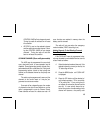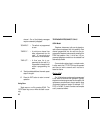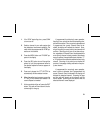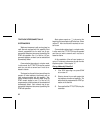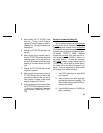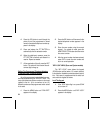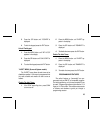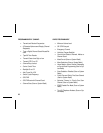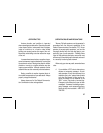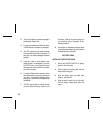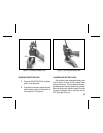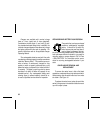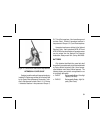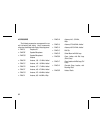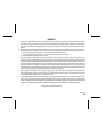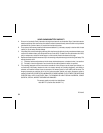OPERATING TIPS
Antenna location and condition is important
when operating a portable radio. Operating the radio
in low areas of terrain, under power lines or bridges,
inside of a vehicle or in a metal or steel framed
building can severely reduce the range of the unit.
Mountains and buildings can also reduce the range
of the unit.
In areas where transmission or reception is poor,
some improvement may be obtained by insuring that
the antenna is vertical. Moving a few yards in another
direction or moving to a higher elevation may also
improve communication. Vehicular operation can be
aided with the use of an externally mounted antenna.
Battery condition is another important factor in
the trouble free operation of a portable radio. Always
properly charge the batteries.
Always observe all of the Federal Communica-
tion Commission’s rules and regulations.
OPERATING RULES AND REGULATIONS
Two-way FM radio systems must be operated in
accordance with the rules and regulations of the
Federal Communications Commission (FCC). As an
operator of two-way radio equipment, you must be
thoroughly familiar with the rules that apply to your
particular type of radio operation. Following these
rules will help eliminate confusion, assure the most
efficient use of the existing radio channels, and result
in a smoothly functioning radio network.
When using your two-way radio, remember these
rules:
1. It is a violation of FCC rules to interrupt any
distress or emergency message. As your
radio operates in much the same way as a
telephone "party line", always listen to make
sure that the channel is clear and/or ob-
serve the display for the absence of the
"BSY" status flag before transmitting.
Emergency calls have priority over all other
messages. If someone is sending an emer-
gency message - such as reporting a fire or
asking for help in an accident - KEEP OFF
THE AIR!
27



